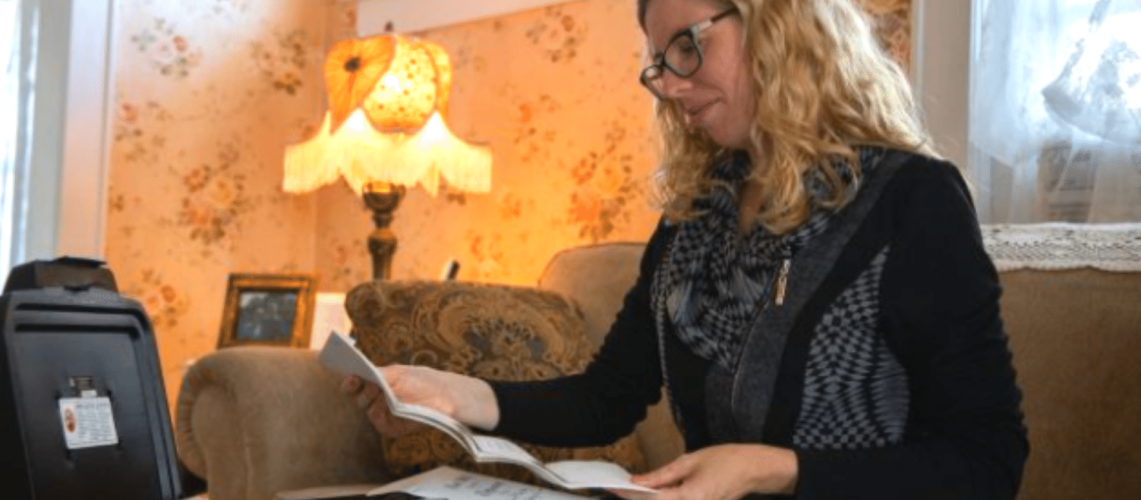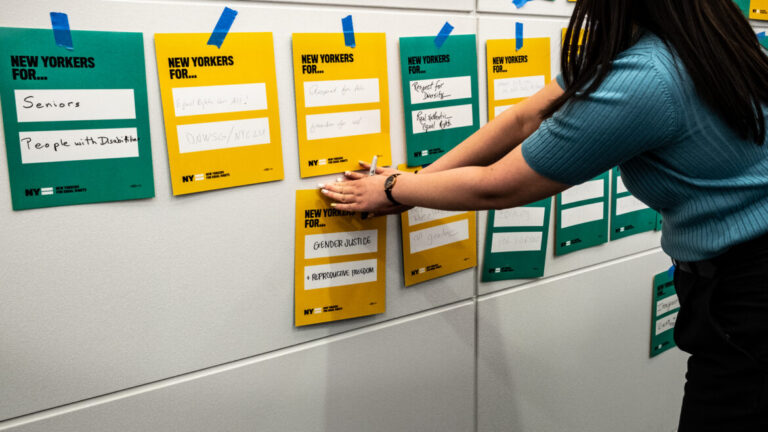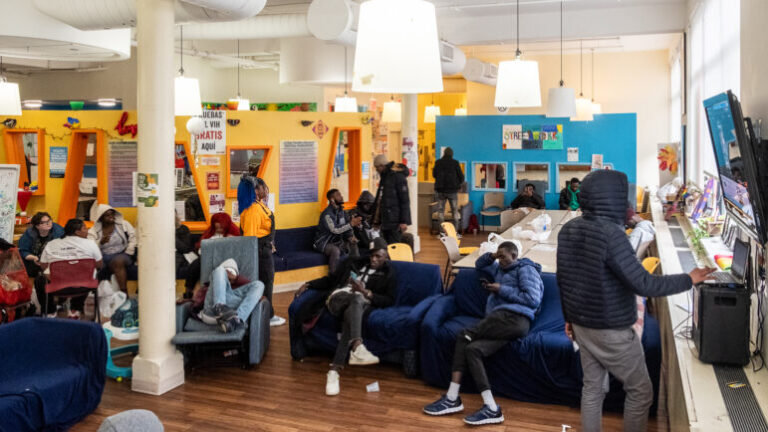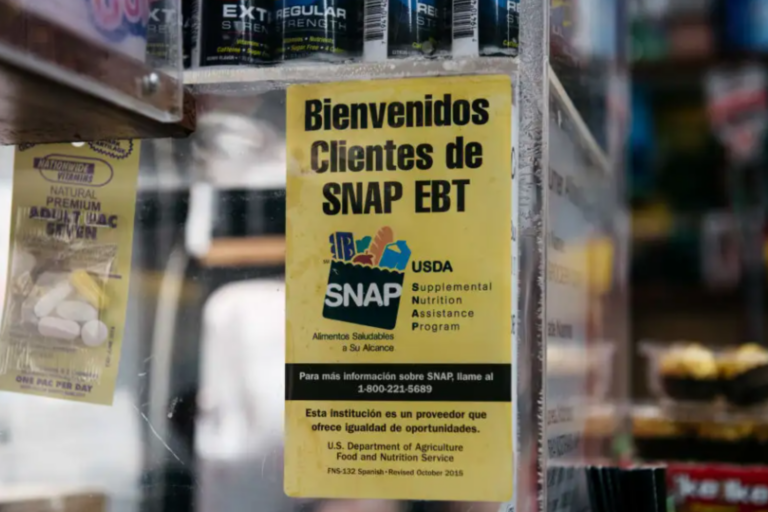By Sarina Trangle
Newsday
Attorney Melissa Negrin-Wiener has spent nearly two decades drafting emergency health plans and wills, and has never seen so many Long Islanders contemplate sickness and death at such a young age.
“This is something that, really, they just kind of pushed to the side in the past,” said Negrin-Wiener of East Setauket, partner at the Melville-based Genser Cona Elder Law firm. “Hearing about all these younger people who are getting sick — and some are passing — from COVID has opened everyone’s eyes.”
Business has surged for financial planners and attorneys who help Long Islanders draft advanced care plans — which provide direction when people are not well enough to make their own health care decisions — and estate plans — which guide personal and financial management ahead of and after death. Firms have extended their hours, hired staff and taken steps to absorb an increase in business of up to 40%, lawyers said.
The pandemic has prompted people of all ages to assess their wishes, but attorneys view the growing number of young clients as a cultural shift. Typically, people seek out planning services when they’re approaching retirement, although others act after having children or watching a loved one grow ill or die, according to those in the field.

Allison Augstein, 33, says she had never had end-of-life discussions before the pandemic. Credit: Newsday/J. Conrad Williams Jr.
“As a 33-year-old, I have never had those conversations,” said Allison Augstein, a Carle Place resident who does not have children. “In order to make it easier and take a little bit of that burden off, I thought: Let’s have a plan. Let’s kind of map it out, so that there’s no question.”
Augstein wants comprehensive plans. But she is particularly concerned about identifying someone besides her husband who can make health care decisions for her during emergencies.
“I don’t want to be the type of person who’s hooked up to tubes and wires for the remainder of my life. And as a young person, I think that [my husband] would hang on to some sort of hope that it could get better,” said Augstein, a real estate agent. “It would automatically go to him, as my husband, if I don’t have a plan.”
Legal docs in demand
Augstein and her peers’ reckoning are part of what has driven demand at legal offices across Long Island. Beyond pandemic-related concerns, traffic is up due to a change in how eligibility for Medicaid-provided home care is calculated, attorneys say.
Negrin-Wiener said her firm has extended its hours because business has increased about 25% since the pandemic began. Futterman, Lanza and Pasculli, an elder and estate law firm with three Long Island offices, has hired three employees and is looking for an additional support staffer to help with a roughly 40% increase in business since reopening in June, according to partner Felicia Pasculli.

Attorney J. Stewart Moore said he’s seen a huge uptick in surrogate issues — matters related to the court system that decides what happens to people’s property after they die. Credit: Newsday/Thomas A. Ferrara
Surrogate issues — matters related to the court system that decides what happens to people’s property after they die — have become a greater share of the workload at J. Stewart Moore’s general practice law firm.
“In a six-month period, I probably have been more exposed to that than I have been probably in the past five years,” said Moore, a Wheatley Heights resident who runs his practice out of a Central Islip office. “It’s clearly changed our world.”
The back-to-school market
Multigenerational visits have become more common, according to Ann-Margaret Carrozza, an elder law and estate planning lawyer with offices in Port Jefferson and Queens. More parents are having their college-bound children fill out health care proxy forms than in the past, she said.
Kim Cottage of Smithtown grew nervous after reading about parents who were not able to get in touch with their child when the student contracted COVID on campus. She directed her 19-year-old son to include her on health care proxy paperwork. Cottage said she and her husband stored photographs of the document on their phones, before their son departed for his sophomore year.
“Now I know I can help him,” said Cottage, managing partner of a staffing company, noting that parents are no longer automatically clued in to health concerns when their kids legally become adults. “Once your child turns 18, you have no rights.”

Michelle Caldera-Kopf says her family decided to shore up its plans when her husband, a teacher, prepared to instruct teenagers in person. Credit: Newsday/J. Conrad Williams Jr.
In Dix Hills, Michelle Caldera-Kopf said her family decided to shore up its plans when her husband, a teacher, prepared to instruct teenagers in person. Caldera-Kopf, 50, said her work as an immigration attorney may require her to interact with others before doing so feels comfortable.
“I was prompted by the knowledge that the world is not a safe place to be right now,” said Caldera-Kopf, who has an 8-year-old and a 10-year-old. “It was good to sort of reconfirm that we were on the same page about organ donation and end-of-life decisions, [and] what we wanted to happen with our children, should we pass together.”
Digital planning tools
Startups offering digital planning services have reported exponential growth among younger users.
Cake, an end-of-life planning platform, estimated that five times as many New Yorkers are using its free digital planning tools now compared to before the pandemic, said the Boston company’s co-founder and CEO, Suelin Chen. Chen said that 18- to 24-year-olds are about 16% of the firm’s audience in New York, but were about 9% pre-COVID-19.
Gentreo, another digital planning tool that lets users create and store documents for $9.99 a month, has seen the volume of New Yorkers on the platform grow 330%, according to Renee Fry, CEO of the Massachusetts-based company. Over the past few months, the average age of customers in New York hovered around 38, compared to 48 during the same period in 2019, Fry said.
“Everyone seemed to be doing it younger,” Fry said, “single people, married people, divorced.”
Although these alternatives to hiring an attorney may offer lower rates, digital platforms’ products often require witnesses and notarization to be valid, according to Maria Hunter, director of the public benefits unit at the nonprofit New York Legal Assistance Group.
The cost of working directly with a professional planner varies based on individual circumstances, according to Michael Ryan, who is on the board of directors of the Estate Planning Council of Nassau County trade group. Ryan said a simple package, such as a health care proxy, living will and power of attorney, may be billed at around $2,500 to $3,000. He said the cost of well-executed plans can spare Long Islanders from greater expense later on.
At a minimum, lawyers recommend New Yorkers complete a health care proxy and consider a power of attorney, which, respectively, allow others to steer their treatment and finances, if necessary.
“Everyone who is over 18 should have those documents. If something happens, your parents — especially in a legal, financial situation — can’t speak for you,” said Pasculli. “The pandemic has left people feeling vulnerable. They’re understanding better that anything can happen to anyone at any time.”
Seeing a silver lining
Finances aside, reflecting on your priorities is a valuable aspect of end-of-life planning, according to Erin McCauley, 37, of Oceanside.
“I find it kind of fun to … know that this relative is going to be taken care of and they won’t have to worry about school, or that you want to leave something to the [animal] rescue,” said McCauley, a librarian.
Working to establish a legacy – say through a will – is a healthy coping mechanism during a period where people have lost a sense of control and are more aware of their mortality, according to Anne Moyer, a professor of social and health psychology at Stony Brook University.
“You reaffirm that, should you evaporate tomorrow, your time on earth will have meant something — even if it is making sure that your pet is cared for or your resources go to someone who you care about,” said Moyer, a Rocky Point resident, who said people may feel more empowered by drafting wills or other plans. “Doing things to cope that bring back that sense of control, I think, provides some kind of comfort and solace.”
Moyer said it is difficult to assess how making end-of-life plans may impact people long-term, but said some people may become less complacent about more distant goals, like preparing for retirement.
“I feel concerned for people who are feeling stressed right now,” said Moyer, 54, who started thinking about creating a will after recent questions from her parents. “But in a way, it may also cause people to be a little more future-directed, and therefore, better prepared.”
McCauley was scheduled to meet with Pasculli in March, but her planning was delayed a few times during the peak of the pandemic. McCauley realized she wanted end-of-life plans when her partner was diagnosed with Early-Onset Alzheimer’s disease and died a few years ago.
“When you’re grieving, the last thing you want to do is figure out finances,” she said.
After finalizing her plans, McCauley stored them in a fireproof box and distributed copies to relevant people. She has also made final arrangements with Towers Funeral Home in Oceanside, and makes periodic payments toward the funeral so her family will not have to cover it.
“You can pick out what music and what prayer cards … how many days you want your wake to be — all of that,” said McCauley, who chose a pink coffin. “We’re going to have to do this anyway, let’s make it fun.”
Definitions and documents
When and why
Consider and codify your preferences when you’re healthy because documents cannot be finalized if there are questions about your ability to understand what you’re signing, said Maria Hunter, director of the public benefits unit at New York Legal Assistance Group, which provides free financial planning and legal assistance to low-income New Yorkers.
Be aware that if your wishes do not match the state’s framework, you will want to draft your own plans. Working with an attorney becomes more important when your preferences are “jumping the line,” according to Erika Verrill, attorney for the adult home unit at Nassau Suffolk Law Services, a nonprofit.
Health care-focused documents
Advanced directives guide care for people when doctors determine they cannot make their own decisions. Without advanced directives, state law lays out who may act as a surrogate and make decisions on your behalf in institutionalized settings. A court-appointed guardian would be the first person to assume that role. If that’s not feasible, the surrogate power shifts to a spouse, then an adult child, a parent, an adult sibling, and finally, a close friend.
A health care proxy empowers an agent to act on your behalf, when necessary, and may include specific preferences. A health care proxy can often be completed independently of a lawyer. The state Department of Health has forms available online at on.ny.gov/3je85hS, which must be signed by two witnesses.
Another option is a living will, which focuses on specific personal choices and may be used to advise an agent, caregivers or medical professionals.
Financial and administrative concerns
Estate planning refers to tools for managing financial, legal and administrative affairs.
A power of attorney document appoints an agent who can execute transactions and handle administrative affairs on your behalf. For instance, an agent could pay your bills if you were hospitalized.
A trust can be set up to ensure you meet financial eligibility requirements for certain government care programs and to protect loved ones, such as children, attorneys said.
Wills specify what will be done with your possessions after your death. Wills may be able to ensure that certain expenses are covered before your assets are used to pay debt, Hunter said. Absent a will, state law includes a formula for divvying up possessions after death. Default rules are outlined at bit.ly/3478Ova. For example, if you die with no spouse and no children, your parents inherit everything.
Inexpensive options
- You can inquire about whether you meet income and asset restrictions for receiving free assistance from the New York Legal Assistance Group at 929-356-9582 or nylag.org/hotline.
- Nassau Suffolk Law Services does not charge while assisting low-income people with Medicaid-related legal issues and helps adult home residents and people with HIV/AIDS with emergency health care and nonfinancial end-of-life planning services. The organization can be reached at 631-232-2400 and 516-292-8100.
- If Long Islanders aren’t eligible for free legal aid, Hunter suggested asking private attorneys about sliding fee scales.
- Hunter said freewill.com stands out from other digital resources because it seeks input from trusted organizations, but she said its automated process is not a substitute for professional help. Like other digital planning tools, freewill.com’s products generally require witness signatures or notarization to be valid.
Originally published in Newsday on October 2, 2020.








